In the vast and intricate world of Baldur's Gate 3, players stumble upon countless mysteries and powerful artifacts that shape their journey through the Forgotten Realms. One such enigmatic artifact is the Mirror of Loss, a unique object that presents players with challenging decisions that can significantly impact their gameplay. This mirror not just serves as a mere reflection of one's self but opens up a realm of possibilities, offering a blend of curse and gift. Mastering its use demands a deep understanding of its workings and the sacrifices it entails, making it a pivotal feature in the bg3 mirror of loss quest line. Its significance lies not only in its immediate effects but in the ripple it creates throughout the narrative, illustrating the depth and complexity of character development within Baldur's Gate 3.
The journey to mastering the mirror of loss bg3 begins with finding this mystical artifact, hidden deep within the realms of a game rich in lore and challenge. Upon discovering it, players must navigate through its complexities, learning how to utilize the mirror effectively. This involves choosing which memories to sacrifice, a decision that carries weight and consequences, echoing the themes of loss and sacrifice that permeate the narrative of Baldur's Gate 3. Eventually, players are faced with the task of removing the curse, a process entangled with the Gauntlet of Shar and the Necromancy of Thay, further enriching the game's lore. This article aims to guide adventurers through each step, from locating the Baldur's Gate 3 Mirror of Loss to leveraging its powers and liberating oneself from its grasp, ensuring players are well-prepared to face the challenges that lie in the shadows of this magical world.
Finding the Mirror of Loss
In the expansive world of "Baldur's Gate 3," the Mirror of Loss is a pivotal artifact that players can discover in two distinct locations: the Gauntlet of Shar and the House of Grief. Each location offers unique challenges and rewards, making the journey to find the mirror a critical part of the game's narrative.
Location in Gauntlet of Shar
The Mirror of Loss first appears in the Underdark region during Act 2, but it is not until Act 3 that players can interact with it. To access the mirror in the Gauntlet of Shar, adventurers must first unlock the Threshold of Loss and enter the Chamber of Loss. This can be achieved by placing 1000 gold in the Sacrificial Bowl or using the Silver Key, which may be looted from Sharran Fidelian Lamona. Once inside, players can activate the mirror to begin understanding its powers.
Location in House of Grief
Alternatively, the Mirror of Loss is also located in the House of Grief. Here, players can gain a permanent bonus to one ability of the party member who interacts with the mirror, along with a +1 to Charisma, in exchange for a temporary penalty. Accessing this mirror requires a successful Arcana or Religion check (DC 25) to recognize its purpose. If this check has been completed at the Gauntlet of Shar, it will not be required again at the House of Grief. Players must choose which ability to sacrifice, which will then be afflicted with Stolen Vigour, a -2 penalty. This curse remains until a long rest is taken or the Remove Curse spell is used. Successful interactions may also reward players with a memory that grants a permanent +2 bonus to an ability, enhancing a character's capabilities significantly.
The Mirror of Loss is not just a tool for character enhancement but a deep narrative element woven into the fabric of "Baldur's Gate 3." Its locations in the Gauntlet of Shar and the House of Grief are marked by coordinates X: -645, Y: -735 and X: -474, Y: -1650 respectively, guiding players to these pivotal points in their quest.
How to Use the Mirror of Loss
To harness the powers of the Mirror of Loss in "Baldur's Gate 3," players must navigate a series of checks and decisions that significantly impact their characters' abilities and narrative experience. Here are the essential steps to effectively use the mirror:
Passing the Arcana Check
Initially, one must pass an Arcana check (DC 25) to unlock the potential of the Mirror of Loss. This check is crucial as it allows the party to understand and activate the mirror. If this check has been successfully completed at the Gauntlet of Shar, it need not be repeated at the House of Grief, simplifying subsequent interactions.
Praying to the Mirror (Religion Check)
Before offering memories to the Mirror of Loss, a party member should attempt a Religion check (DC 25). Successfully passing this check by praying to the mirror can significantly enhance the effects of the memory sacrifice. Notably, if the character has previously undergone the Mapping of the Heart, they receive an advantage on this Religion check, increasing the likelihood of a favorable outcome.
Surrendering Memories
Once the preliminary checks are completed, party members can surrender their memories to the mirror. This act requires choosing one ability to temporarily sacrifice, which incurs a -2 penalty known as Stolen Vigour. This curse lasts until a long rest is taken or a Remove Curse spell is used. If the player has passed the Religion check, they may be rewarded with a memory that grants a permanent +2 bonus to an ability of their choice, up to a maximum score of 24. This represents a significant permanent enhancement, reflecting the profound sacrifices made.
Each memory offered can correspond to different aspects of a character's capabilities, such as strength, dexterity, or intelligence. Players should carefully consider which abilities to sacrifice and potentially enhance, as these decisions directly affect their character's development and effectiveness in the game.
By following these steps and understanding the checks involved, players can effectively utilize the Mirror of Loss to shape their characters' abilities and influence their journey through the mystical and treacherous landscapes of "Baldur's Gate 3."
Choosing Which Memories to Sacrifice
When interacting with the Mirror of Loss in "Baldur's Gate 3," players face the critical decision of which memories to sacrifice. This choice not only affects their character's abilities but also shapes their journey within the game.
List of Memories and Associated Ability Scores
Players can offer up various memories, each linked to a specific ability score. Sacrificing a memory results in a temporary -2 penalty to the associated ability but also provides the opportunity to gain a significant bonus. Here are the options:
- Strength: Memories of physical triumphs, like overpowering an enemy.
- Dexterity: Recollections of agility, such as dodging a deadly trap.
- Constitution: Memories of endurance, perhaps surviving a harsh environment.
- Intelligence: Knowledge from intense study and learning.
- Wisdom: Insights gained from profound experiences and intuition.
- Charisma: Moments of influence and leadership.
Each sacrificed memory has the potential to grant a permanent +2 bonus to an ability of the player's choice, enhancing their character's capabilities.
Impact of Each Sacrificed Memory
The impact of sacrificing a memory extends beyond the immediate ability score changes. Here are some specific outcomes based on the memory offered:
- Forbidden Knowledge: This unique choice does not result in loss of the knowledge itself but guarantees a +2 bonus, even without a successful Religion check.
- General's Memory: Gain +2 Strength, embodying the might of a historic general.
- Thief's Memory: Receive +2 Dexterity, reliving a thief's cunning maneuvers.
- Barbarian's Memory: Enhance Constitution by +2, drawing on a barbarian's resilience.
- Wizard's Memory: Increase Intelligence by +2, accessing a wizard’s arcane secrets.
- Mother-Superior's Memory: Boost Wisdom by +2, reflecting deep spiritual insights.
- Bard's Memory: Improve Charisma by +2, channeling a bard's enchanting charm.
Choosing which memory to sacrifice is a strategic decision that players must weigh carefully. Each choice not only affects their character's development but also their interaction with the game's world and its inhabitants. The Mirror of Loss thus serves as a powerful narrative and gameplay tool, deepening the player's engagement with the intricate world of "Baldur's Gate 3."
Removing the Curse
Upon interacting with the Mirror of Loss in "Baldur's Gate 3," characters may find themselves afflicted with Stolen Vigour, a condition that temporarily reduces an ability score by two points. Here are the methods to remove this curse and restore the character's abilities.
Using the Remove Curse Spell
The primary method to counteract the Stolen Vigour curse is by employing the Remove Curse spell. This spell effectively restores the diminished stat to its original value. Players should ensure that a character capable of casting this spell, such as a cleric or a wizard, is part of their party. Once cast, the curse is lifted immediately, though the beneficial +2 stat boost obtained from sacrificing a memory remains unaffected, thus permanently enhancing the character's abilities.
Using Long Rest to Remove the Penalty
Alternatively, players can opt to remove the curse by taking a long rest. This method does not require the use of any resources apart from time. After completing a long rest, the character's afflicted ability score will return to normal. This option is particularly useful for parties that might not have immediate access to the Remove Curse spell or prefer to conserve their magical resources for more dire situations.
Both methods provide flexibility in managing the consequences of interacting with the Mirror of Loss, allowing players to strategically plan their recovery based on their immediate situation and available resources.
Conclusion
Navigating the challenges and decisions presented by the Mirror of Loss in Baldur's Gate 3 encapsulates a significant aspect of the game's immersive experience, blending character development with narrative depth. The journey from uncovering this artifact to mastering its potential highlights the importance of strategic decision-making, underpinning the themes of sacrifice and consequence that permeate the game. Through careful consideration of which memories to sacrifice, players not only forge their characters' abilities but also shape their narrative journey, reflecting the depth and complexity of interactions within the Forgotten Realms.
Ultimately, the Mirror of Loss stands as a testament to the intricate design of Baldur's Gate 3, offering players a unique avenue to explore the facets of loss and gain within the game's richly woven tapestry. By engaging with this artifact, players are invited to reflect on the broader implications of their choices, the potential for growth amidst loss, and the enduring impact of those decisions on their adventure. It underscores the dynamic interplay between player agency and narrative progression, solidifying the Mirror of Loss as a pivotal element of the game's allure and challenge.
FAQs
What items can be offered to the Mirror of Loss in Baldur's Gate 3?
Players can offer any attribute, except those with a score of 8, to the Mirror of Loss. Options include memories of strength from victorious moments or memories from youthful times characterized by agility and a carefree spirit.
What are the effects of using the Mirror of Loss in Baldur's Gate 3?
Using the Mirror of Loss, located in the House of Grief, provides a permanent bonus to one ability and an additional +1 to Charisma for the character interacting with the mirror. This is balanced by a temporary penalty. Each party member can use the mirror independently, potentially increasing the entire party's stats significantly.
Is it possible to deceive the Mirror of Loss in Baldur's Gate 3?
Yes, the Mirror of Loss can be deceived with a successful Deception check. This allows the player to avoid any penalties to an Ability Score while still receiving a buff to another trait.
What types of sacrifices does the Mirror of Loss require in Baldur's Gate 3?
The Mirror of Loss requires the sacrifice of significant memories, such as those of resilience and health (-2 Constitution) or important learned knowledge from books and scrolls that deeply impacted you (-2 Intelligence).
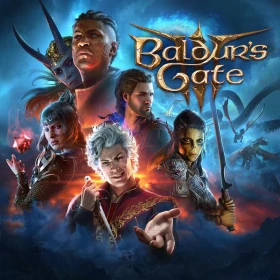
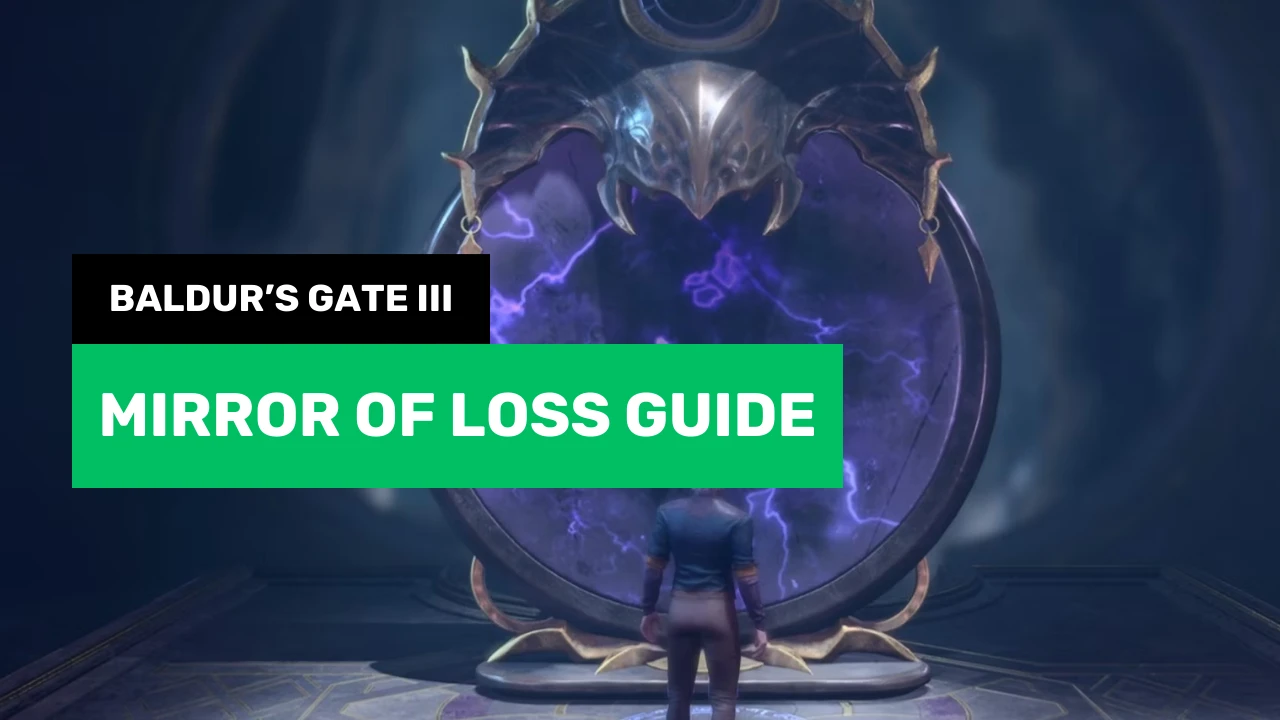
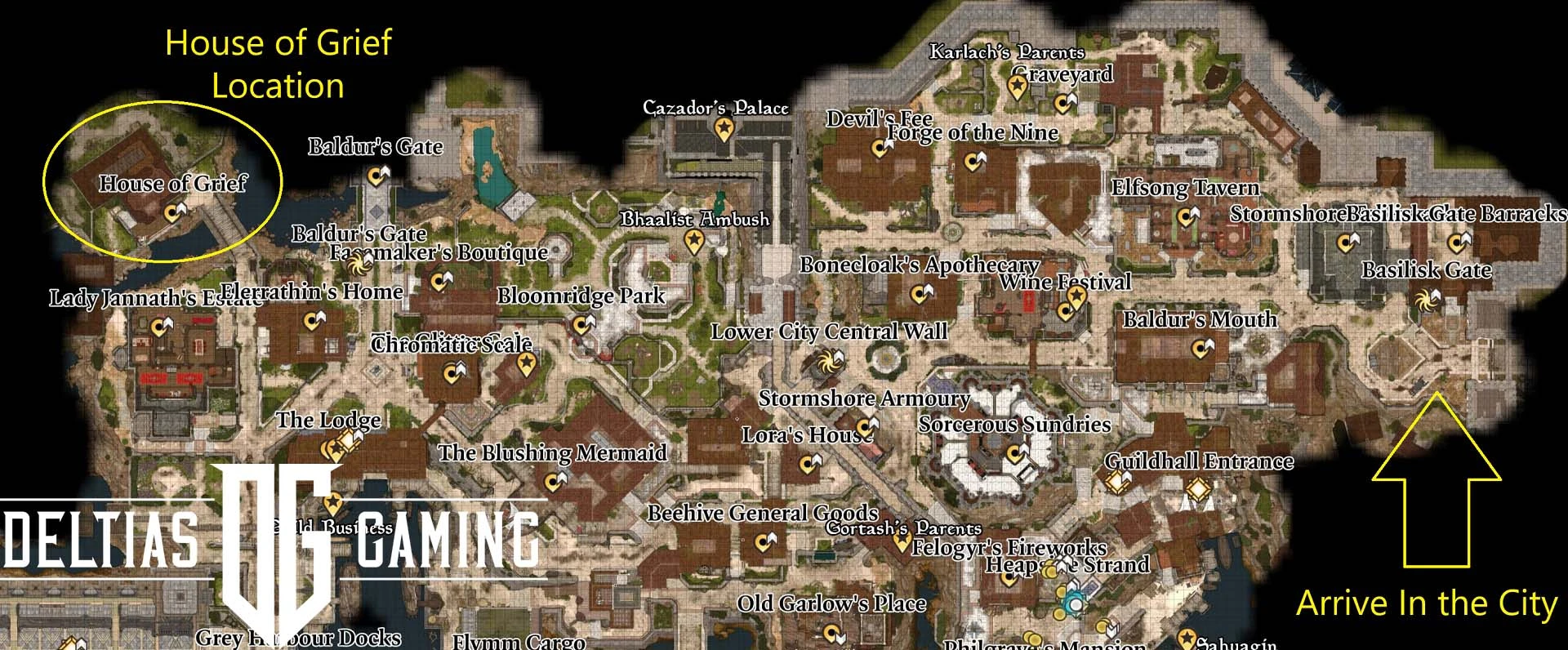

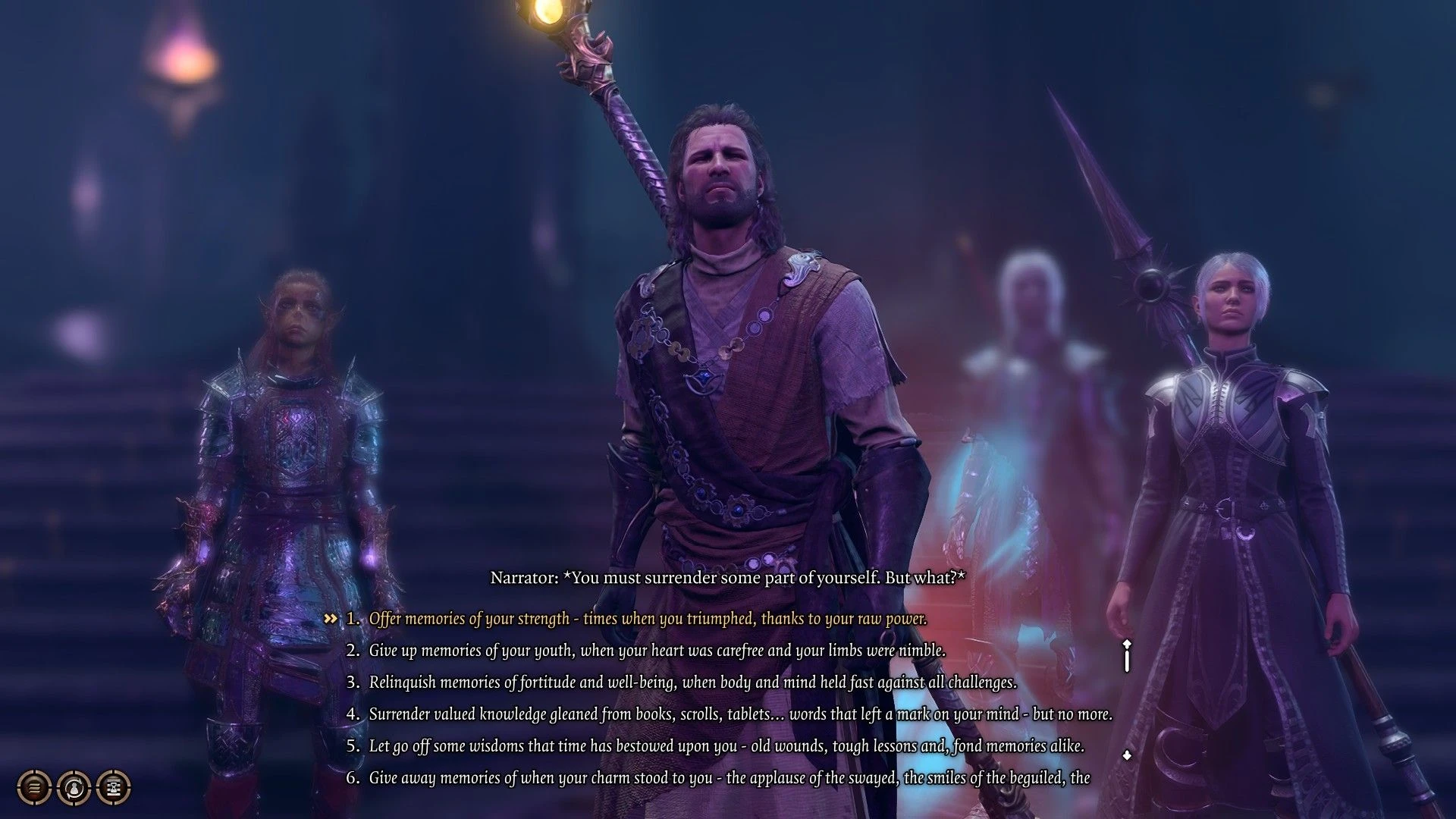
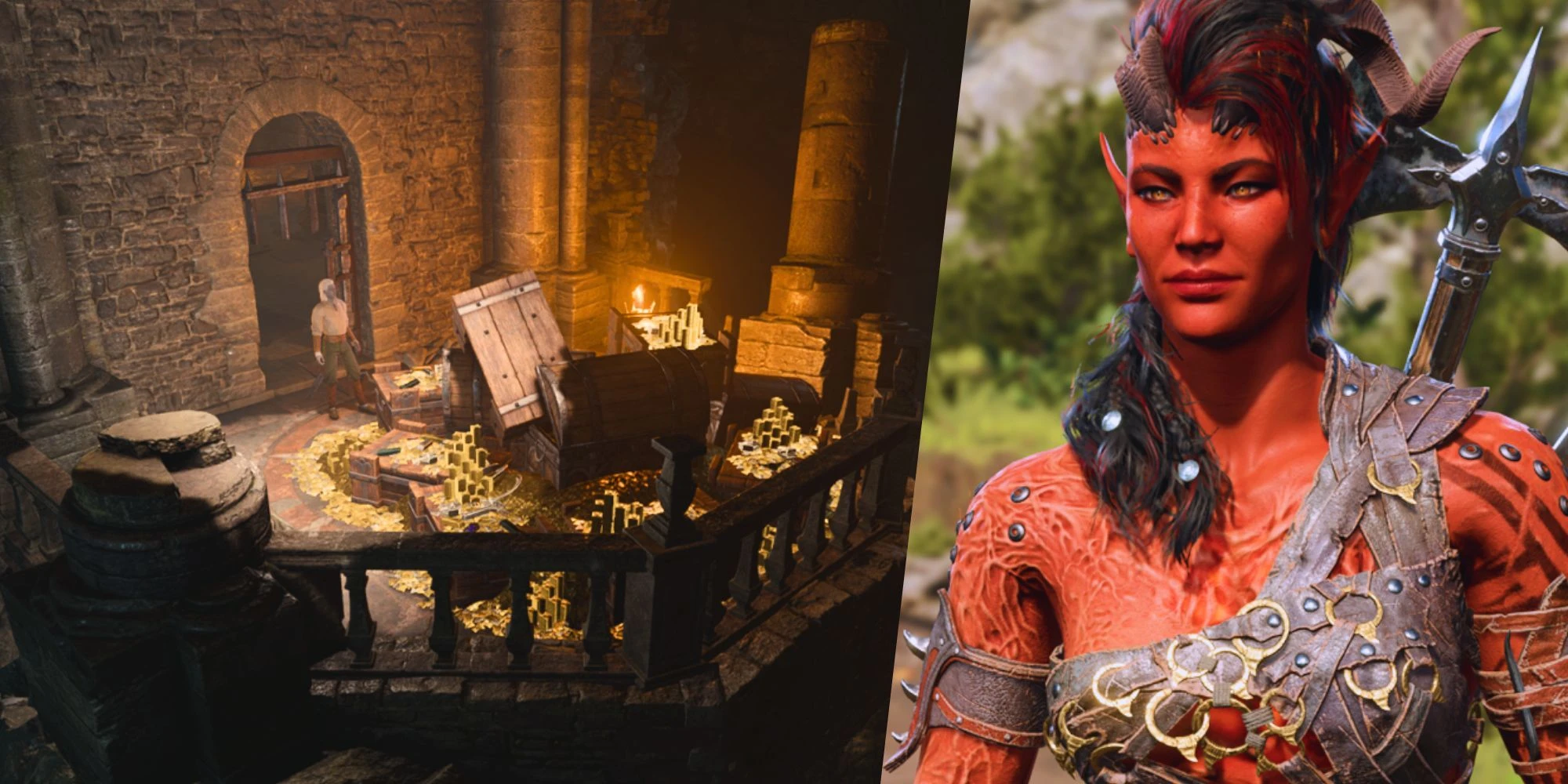
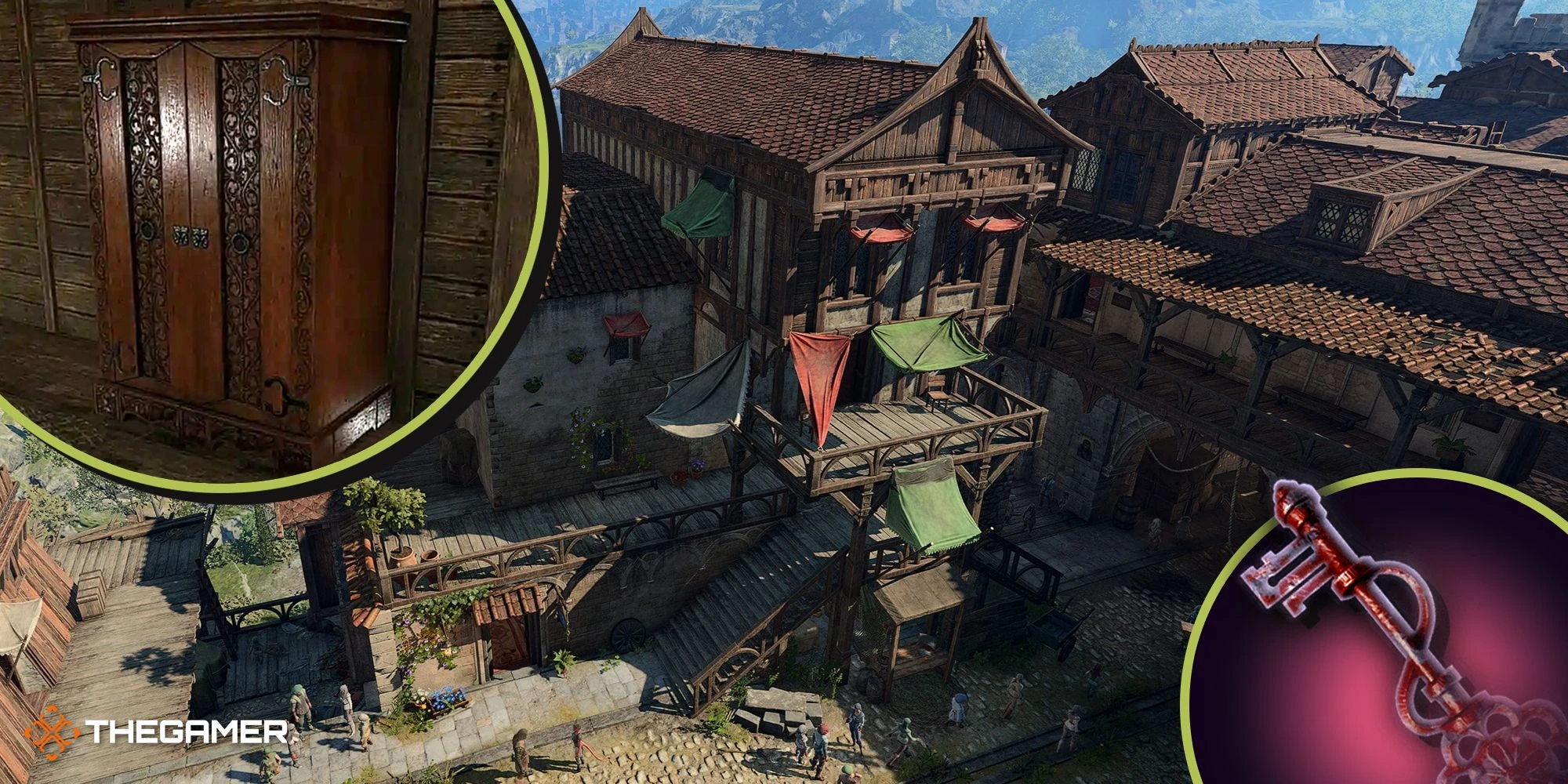
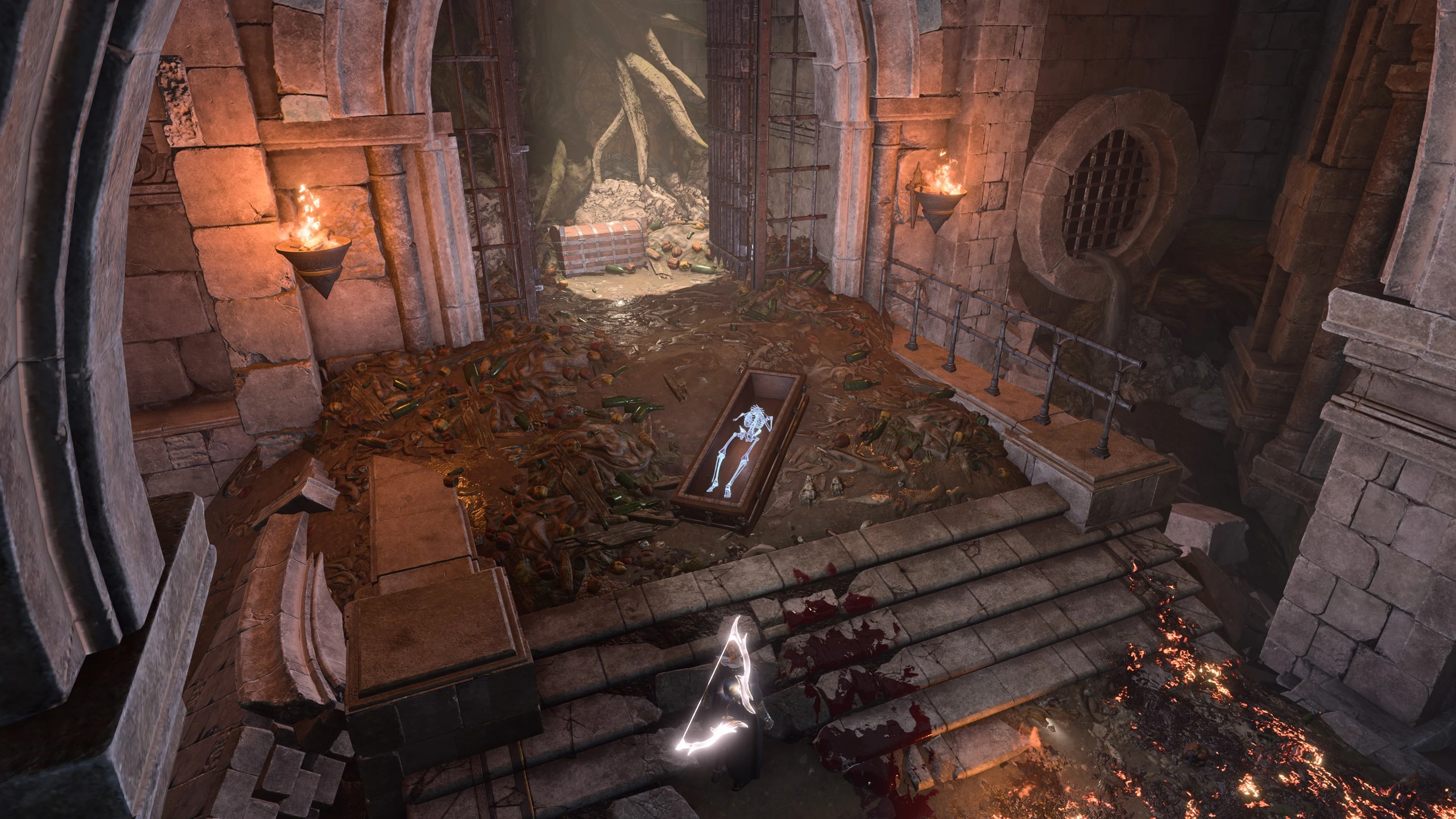



Comments